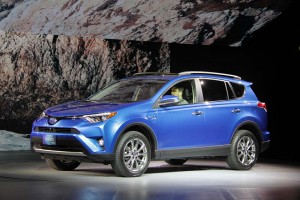After years of hand wringing and teeth gnashing over the perceived lack of interest by millennials in cars, it appears perception is no longer reality. America’s newest consumer segment likes cars — expensive ones.
According to the latest EquiTrend Study from The Harris Poll, millennials are drawn to high-end brands when it comes to their rides. Seven of the top 10 millennial car brands are luxury brands with Mercedes-Benz coming in at No. 1 displacing Lexus. For older segments, that number is just five out of 10.
Mercedes-Benz boasts an equity score of 73 among millennials, compared to an equity rating of 66 among consumers overall. However, what they like and what they can afford don’t always align. Aspiration outpaces ownership, Harris noted, as millennials are much less likely to actually own luxury cars than older generations.
“Millennials are changing not just what we want to drive, but how we drive and how we shop for cars,” said Joan Sinopoli, vice president of brand solutions at The Harris Poll.
(Are privately owned cars set to vanish? To find out, Click Here.)
“While maybe not a full-blown romance, the flirtation with cars as part of our culture is alive and well with younger generations. Millennials aspire to luxury, and this is nowhere more evident than in the automotive industry, where they are behind Mercedes-Benz’s equity strength.”
The rest of the luxury top five after Mercedes: BMW, Genesis, Lexus and Porsche. Mercedes actually generates a buzz across categories, according to the study. Mercedes and Toyota, the top non-luxury brand for millennials, were among the top quarter of all brands recognized by the age group, regardless of category.

Millennials have strong preference for luxury auto brands, but their checkbooks are likely to steer them toward non-luxe brands and Toyota tops that list.
The top non-luxury brands for millennials after Toyota, which has taken the top spot for three consecutive years, were Honda, Chevrolet, Ford, Subaru, Nissan, GMC and Mazda. Additional auto findings included:
- While Lincoln’s brand equity remains below the Luxury Auto category average, the automaker’s brand equity increased significantly (3.4 points) since 2014, coinciding with Lincoln’s commercials featuring actor Matthew McConaughey. Comparing generations, the brand’s equity is highest among millennials. Since 2013, Lincoln’s brand equity has increased 6 points.
- Subaru is the clear fast riser in the Non-Luxury Auto category. In fifth place this year, Subaru builds on its equity as the brand focuses on its SUV/Crossover roots and continues its Love campaign.
- Tesla has been the top momentum auto brand for the last four years. While it still has a way to go to compete with top car brands in equity, its strong momentum places it among the new “next big thing” home automation brands, second only to Amazon Echo.
- Volkswagen’s equity is showing slow signs of recovery after its emissions scandal, but the automaker continues to struggle on the brand momentum scale, with 35 percent of consumers considering the brand “on the way down.”
(Click Here to see why Maryland tops the list as safest place for teen drivers.)
Unsurprisingly, this aspirational nature of millennials translates to their in-vehicle entertainment systems as well. The top choice in the study for car audio was Beats over Bose, which resonates more with Gen Xers and Baby Boomers.
Beats rose 12 equity points to succeed Bose, which has held the Car Audio Brand of the Year title for the past five years. Harris Poll’s research indicates that millennials may be behind Beats’ success – 33% of millennials are familiar with Beats, compared to 17% of consumers overall.
“Millennials are extremely familiar with, and think highly of both brands, but they may more strongly associate Beats with mobility whereas they associate Bose (Home Entertainment Electronics Brand of the Year) with high quality sound in-and-around the home,” Sinopoli said.
While not an award category this year, OEM infotainment equity is increasing year-over-year, with evidence pointing to millennials impacting the category’s growth.
(New vehicle sales tumble in April. Find out why, Click Here.)
“With the growth in car audio and infotainment equity, we see cars not-so-gradually changing from a durable to a true lifestyle purchase, a mobile business and entertainment hub,” she said.

